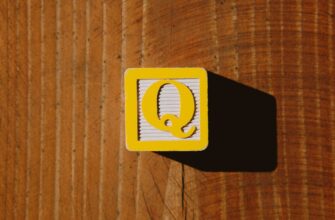- Why Bitcoin Matters in Venezuela
- How to Choose a Bitcoin Wallet in Venezuela
- Top 5 Bitcoin Wallets for Venezuelan Users
- 1. Exodus: User-Friendly Multi-Currency Support
- 2. Trust Wallet: Mobile-First Flexibility
- 3. Electrum: Advanced Security for Experienced Users
- 4. BlueWallet: Lightning Network Integration
- 5. Coinomi: Multi-Asset Management
- FAQ: Bitcoin Wallets in Venezuela
- Is Bitcoin legal in Venezuela?
- How can I buy Bitcoin in Venezuela?
- Can I convert Bitcoin to Bolivars easily?
- Are hardware wallets worth the cost?
- What’s the biggest wallet risk in Venezuela?
Why Bitcoin Matters in Venezuela
Venezuela’s economic crisis, marked by hyperinflation and strict financial controls, has driven many citizens to adopt Bitcoin as a financial lifeline. Cryptocurrencies offer a way to preserve savings, access global markets, and bypass restrictive banking policies. With over 2.9 million Venezuelans using crypto (Chainalysis 2022), choosing the right Bitcoin wallet is critical for security and ease of use.
How to Choose a Bitcoin Wallet in Venezuela
Consider these factors when selecting a wallet:
- Security: Opt for non-custodial wallets with two-factor authentication.
- Accessibility: Mobile-first options suit limited device availability.
- Low Fees: Prioritize wallets with adjustable transaction fees.
- Local Currency Support: Some wallets integrate with Bolivar (VES) exchanges.
- Ease of Use: Spanish-language interfaces are a plus.
Top 5 Bitcoin Wallets for Venezuelan Users
1. Exodus: User-Friendly Multi-Currency Support
Exodus offers a sleek interface and supports 250+ cryptocurrencies. Its built-in exchange and portfolio tracker make it ideal for beginners.
- Pros: Desktop/mobile sync, 24/7 support, no KYC.
- Cons: Not open-source; higher exchange fees.
2. Trust Wallet: Mobile-First Flexibility
Owned by Binance, Trust Wallet provides seamless integration with decentralized apps (dApps) and staking options.
- Pros: Open-source, supports Binance Smart Chain.
- Cons: Mobile-only; limited desktop features.
3. Electrum: Advanced Security for Experienced Users
Electrum is a lightweight desktop wallet praised for its robust security features, including cold storage compatibility.
- Pros: Customizable fees; phishing protection.
- Cons: Steep learning curve; no mobile app.
4. BlueWallet: Lightning Network Integration
BlueWallet simplifies fast, low-cost Bitcoin transactions via the Lightning Network, perfect for daily purchases.
- Pros: Open-source; multisig vaults.
- Cons: Bitcoin-only; newer to the market.
5. Coinomi: Multi-Asset Management
Coinomi supports 1,770+ cryptocurrencies and offers strong privacy features, including IP masking.
- Pros: Cross-platform; in-wallet swaps.
- Cons: Past security concerns; closed-source code.
FAQ: Bitcoin Wallets in Venezuela
Is Bitcoin legal in Venezuela?
Yes, but regulations are evolving. Avoid state-run exchanges like Patria, which mandate KYC.
How can I buy Bitcoin in Venezuela?
Use peer-to-peer platforms like LocalBitcoins, Binance P2P, or Hodl Hodl to trade VES for BTC.
Can I convert Bitcoin to Bolivars easily?
Yes—wallets like Exodus integrate with exchanges such as LocalCryptos for VES conversions.
Are hardware wallets worth the cost?
For large holdings, yes. Trezor or Ledger devices offer unmatched security but cost $60+.
What’s the biggest wallet risk in Venezuela?
Phishing scams. Always verify wallet URLs and enable 2FA.








